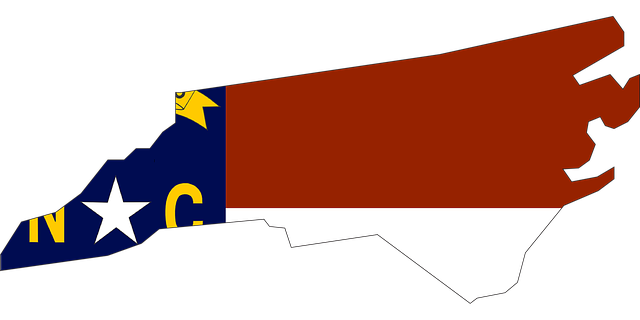Spam calls are a growing problem in North Carolina, but residents have options. The Telemarketing Consumer Protection Act (TCPA) offers protections, and specialized law firms like Etowah assist with legal action against spammers. By registering on the National Do Not Call Registry, using call-blocking tools, and reporting suspicious numbers, individuals can reduce unwanted calls. Etowah's expertise in navigating TCPA laws has led to successful spam call mitigation for many clients, offering relief from persistent interruptions and protecting consumer privacy.
In North Carolina, as across the nation, unwanted spam calls remain a pervasive nuisance. Etowah has emerged as a leading force in combating this issue through innovative legal strategies and community education. This article delves into how Etowah is navigating the complex landscape of spam call laws, providing valuable insights for residents looking to protect themselves. Discover effective steps to reduce spam exposure and learn from success stories, empowering you with knowledge on how to stop spam calls in North Carolina using reputable firms like Etowah and their expert legal counsel under TCPA regulations.
Understanding Extraneous Exchanges and Their Impact in North Carolina
Extraneous exchanges, often in the form of unwanted spam calls, are a prevalent issue in North Carolina, impacting countless residents daily. These persistent and unsolicited phone calls not only disrupt individuals’ peace but also pose significant challenges to businesses and consumers alike. In today’s digital age, with advanced technology making it easier for spammers to target specific areas, North Carolina faces a growing problem of spam calls. According to the Telemarketing Consumer Protection Act (TCPA), such practices are illegal, yet they continue to thrive due to loopholes and evolving techniques employed by spammers.
Understanding how these exchanges impact North Carolina residents is crucial. Many individuals struggle with unwanted marketing calls from telemarketers, debt collectors, or even political campaigns, often making it hard to differentiate between legitimate business calls and invasive spam. The constant barrage of calls can be stressful, leading to wasted time, frustration, and potential privacy invasion. This is where a Spam Call law firm in North Carolina steps in, offering legal expertise to help individuals navigate the TCPA and put an end to these disturbing exchanges. With the assistance of experienced lawyers, residents can take action, file complaints, and seek remedies under the law to stop spam calls effectively.
The Role of Etowah in Navigating Spam Call Laws
Etowah plays a pivotal role in navigating the complex landscape of spam call laws in North Carolina. With an increasing number of unwanted phone calls, many residents turn to professionals for guidance on how to stop spam calls. Etowah’s expertise lies in understanding and enforcing the Telephone Consumer Protection Act (TCPA), a federal law designed to protect consumers from intrusive telemarketing practices. The firm assists clients in determining whether their calls fall under the TCPA’s regulations and takes legal action against violators, ensuring compliance with North Carolina’s spam call laws.
By employing skilled spam call lawyers North Carolina, Etowah helps businesses and individuals alike to defend their rights. They guide clients on how to stop spam calls effectively, offering tailored strategies to mitigate unwanted communication. Their work doesn’t just involve legal battles; they also educate consumers on their rights and available remedies under the TCPA, fostering a better-informed community in North Carolina.
Legal Strategies to Combat Unwanted Spam Calls
In North Carolina, as in many states, unwanted spam calls are a growing concern. The Telephone Consumer Protection Act (TCPA) offers legal strategies to combat this issue. Consumers can take several steps to stop spam calls, starting with registering their phone numbers on the National Do Not Call Registry. This federal list restricts telemarketers from calling registered numbers without prior consent.
For more targeted protection, individuals should consider consulting a spam call law firm or lawyer specializing in TCPA cases. These legal professionals can help navigate complex regulations and take necessary actions against repeat offenders. By understanding their rights and available legal remedies, North Carolina residents can effectively manage and minimize the intrusion of unwanted spam calls.
Steps Individuals Can Take to Reduce Spam Exposure
To reduce spam exposure, individuals in North Carolina can take several proactive steps. Firstly, register on national “Do Not Call” registries to limit telemarketing calls. This is a simple yet effective way to start blocking unwanted calls from reaching your phone lines. Secondly, invest in call-blocking apps or software designed to identify and block spam calls based on sophisticated algorithms. These tools can help filter out suspicious numbers before they even reach your ear.
Additionally, being cautious with personal information online is crucial. Avoid sharing contact details on untrusted websites or platforms. Always review privacy settings on social media accounts to ensure they’re set to protect your data from public access. If you suspect an unwanted caller, document their number and report it to a spam call law firm in North Carolina, like ours. We can assist in navigating the Spam Call laws under the TCPA (Telecommunications Consumer Protection Act) to help stop these calls effectively.
Success Stories: Etowah's Approach in Action
Etowah has numerous success stories to its credit when it comes to helping individuals and businesses in North Carolina combat unwanted spam calls. Their approach is multifaceted, combining advanced technology with legal expertise to effectively shut down these nuisance calls. By employing sophisticated blocking mechanisms and working closely with regulatory bodies, Etowah ensures that their clients’ rights are protected under the Telephone Consumer Protection Act (TCPA).
The firm’s strategic intervention has led to significant reductions in spam call volumes for numerous clients. Many have reported a complete cessation of unsolicited calls after engaging Etowah’s services. This not only provides much-needed relief from persistent and harassing phone calls but also helps businesses save valuable resources that were previously dedicated to managing these interruptions. Etowah’s success serves as a beacon for those seeking effective solutions to the growing problem of spam calls in North Carolina, underscoring their position as leading advocates for consumer privacy and protection.






